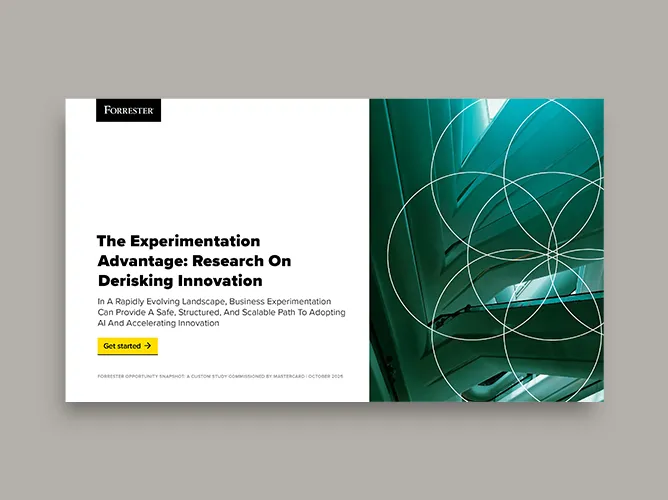What is alternative credit scoring?
Alternative credit scoring is the use of non-standard data, such as regular bill payments, to provide credit scoring for no-file and thin-file consumers as well as to improve scoring for all consumers, which is increasingly enabled via open banking and open finance.
What is a blue bond?
A blue bond is a bond tied to a marine-based or ocean-based environmental initiative. → green bond, sustainability-linked bond (SLB)
What is cap and trade?
Cap and trade is a cap on carbon dioxide emissions based on a carbon credit allocation that may be traded in a carbon market. → emissions trading
What is a carbon calculator?
A carbon calculator is an app that combines data around a purchase with a merchant category code (MCC) to create a standardized estimated calculation of the carbon footprint associated with the purchase.
What is a carbon credit?
A carbon credit is a financial instrument, which represents the right to emit one metric ton of carbon dioxide on the basis of a related carbon offset, that may be traded in a carbon market.
What is the carbon market?
The carbon market is a usually a regulated financial market as part of a cap and tradesystem, but it may also refer to a voluntary carbon market (VCM). → emissions trading, carbon credit
What is a carbon offset?
A carbon offset is compensation for carbon dioxide emissions that results from the creation of a carbon credit and a business’s investment in it.
What is a credit invisible consumer?
A credit invisible consumer, also known as a no-fileconsumer, is a consumer with no formal credit history. → thin-file, thin credit file
What is diversity, equity and inclusion (DEI)?
Diversity, equity and inclusion (DEI) is an aspect of the social or “S” component of environmental, social and governance (ESG) that pertains to organizational frameworks promoting the fair treatment and full participation of all people.
What is electronic money (e-money)?
Electronic money (e-money), also known as mobile money, is a digital store of cash in a pre-paid mobile money account, but it is sometimes used more generally to refer to any electronic representation of money in traditional bank accounts. → electronic money institution (EMI), digital currency
What is emissions trading?
Emissions trading is the trading of carbon credits in a regulated carbon market as cap and trade or in a voluntary carbon market (VCM).
What is an energy efficient mortgage (EEM)?
An energy efficient mortgage, also known as a green mortgage, is a mortgage that either includes the financing of energy efficient improvements to a property, such as heat pumps and solar panels, or offers preferential rates on account of a property’s existing energy efficiency.
What is environmental, social and governance (ESG) investing?
Environmental, social and governance (ESG) is a term coined in the UN’s 2004 “Who Cares Wins” report that calls for the inclusion of ESG factors in corporate valuations for use by investors. → socially responsible investing (SRI)
What is ethical investing?
Ethical investing is an alternative term for socially responsible investing (SRI).
What is financial inclusion?
Financial inclusion, also known as inclusive finance, is the incorporation of unbanked and underbanked people into the financial system by making financial products and services accessible and affordable to all.
What is the Global Reporting Initiative (GRI)?
The Global Reporting Initiative (GRI) is the organization behind the GRI standards for sustainable reporting to stakeholders, which often works with the International Sustainability Standards Board (ISSB) if the stakeholders are also investors.
What are GRI standards?
The GRI standards are the sustainability standards issued by the Global Reporting Initiative (GRI) that represent global guidelines for organizations to follow when reporting publicly on a range of economic, environmental and social impacts.
What is a green asset ratio?
A green asset ratio is the proportion of a financial institution’s assets that are aligned with a green taxonomy. → green investment ratio
What is a green bond?
A green bond is a bond tied to an environmental initiative or set of initiatives. → sustainable bond, blue bond
What is a green investment ratio?
A green investment ratio is the proportion of a financial institution’s investments that are aligned with a green taxonomy. → green asset ratio
What is a green mortgage?
Green mortgage is an alternative term for energy efficient mortgage (EEM).
What is a green taxonomy?
A green taxonomy is a classification system to keep businesses and their investors informed about the environmental sustainability of their activities. → green asset ratio, green investment ratio
What is impact investing?
Impact investing is a form of socially responsible investing (SRI), which may include the environmental considerations, that is focused on creating a specific impact rather than just reflecting an ethical consideration. → thematic investing
What is inclusive finance?
Inclusive finance is an alternative term for financial inclusion.
What is the International Sustainability Standards Board (ISSB)?
The International Sustainability Standards Board (ISSB) is the board in the International Financial Reporting Standards (IFRS) foundation that covers sustainability and since 2022 includes the Sustainability Accounting Standards Board (SASB). → International Accounting Standards Board (IASB), Global Reporting Initiative (GRI)
What is mobile money?
Mobile money is an alternative term for electronic money (e-money).
What is a mobile money account?
A mobile money account is an account on a mobile device for storing electronic money (e-money).
What is mobility as a service (MaaS)?
Mobility as a service (MaaS) is the sharing of transportation system data and capabilities with other providers so they can map out an ideal customer journey and then incorporate any fare concessions and loyalty benefits under a single consolidated transaction.
What is a no-file consumer?
No-file consumer is an alternative term for credit invisible consumer.
What is a roundup donation?
A roundup donation is the rounding up of the value of a consumer’s purchase and donating the amount to charity.
What is socially responsible investing (SRI)?
Socially responsible investing (SRI) is investing in accordance with ethical principles usually based on environmental, social and governance (ESG) considerations, also known as ethical investing. → impact investing
What is the Sustainability Accounting Standards Board (SASB)?
The Sustainability Accounting Standards Board (SASB) is part of the International Sustainability Standards Board (ISSB) since 2022 and focuses on industry-specific reporting to the investment community. → Global Reporting Initiative (GRI)
What is a sustainable bond?
A sustainable bond is a bond tied to an environmental initiative or set of initiatives, where it overlaps with a green bond or blue bond, or it is tied to a social initiative or set of initiatives. → sustainability-linked bond
What is a sustainability-linked bond (SLB)?
A sustainability-linked bond (SLB) is a bond tied to a bond issuer’s performance-based on social or environmental goals. → sustainability-linked loan (SLL), sustainable bond
What is a sustainability-linked loan (SLL)?
A sustainability-linked loan (SLL) is a loan tied to a borrower’s performance-based social or environmental goals → sustainability-linked bond (SLB)
What is sustainable consumption?
Sustainable consumption is a term coined in the “Agenda 21” policy document of 1992 UN Earth Summit that calls for more environmentally friendly approaches to consumption and associated production.
What is thematic investing?
Thematic investing is investing in areas tied to specific themes, which may sometimes include environmental, social and governance (ESG) themes as a form of socially responsible investing (SRI). → impact investing
What is a thin credit file?
A thin credit file is a thin-file consumer’s credit history.
What is a thin-file consumer?
A thin-file consumer is a consumer with limited formal credit history. → thin credit file, no-file, credit invisible
What is an unbanked person?
An unbanked person is a person lacking access to banking products and services, which in some definitions may also pertain to electronic money (e-money). → underbanked
What is an underbanked person?
An underbanked person is a person with limited access to banking products or services, which may in some definitions may also pertain to electronic money (e-money). → unbanked
What is a voluntary carbon market (VCM)?
A voluntary carbon market is an unregulated carbon market for emissions trading that sits outside of a legally required and regulated cap and trade system.











